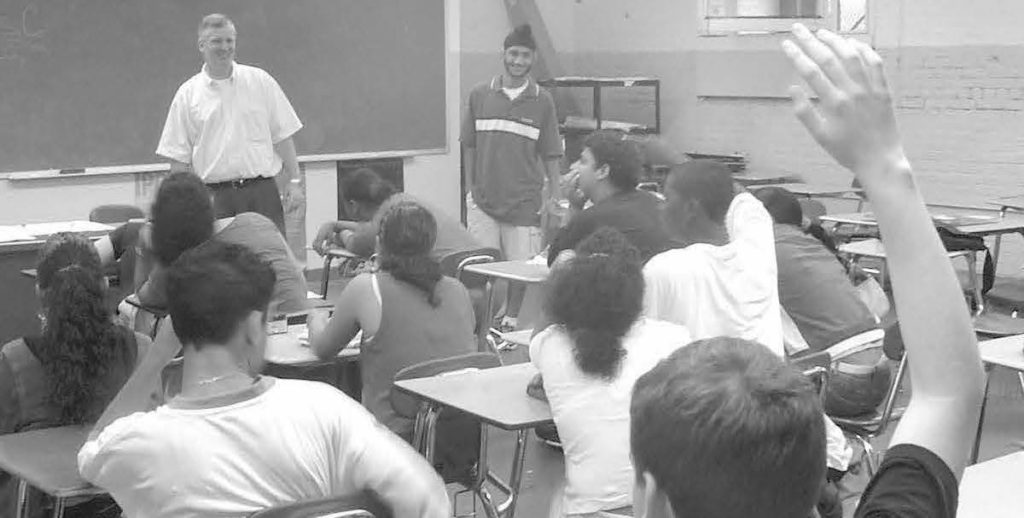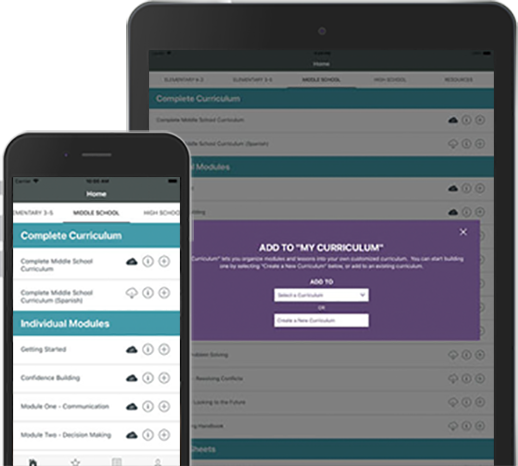Establishing What’s Important
Posted: April 9, 2019By Jill Siegal Chalsty, Founder of Overcoming Obstacles

April 14 marks Overcoming Obstacles’ 27th anniversary. As I reflect back over the years, one educator’s story stands out in my mind.
Jack Wright was a teacher at Dickinson High School in Jersey City, New Jersey. He was a champion for life skills education before schools and school districts had it on their radar, and his classroom consistently demonstrated the power of a life skills education. Jack’s students were designated at risk of dropping out of school, so his focus was to help them become strong communicators who would make wise decisions and set meaningful goals.
Jack began each class by greeting his students with a handshake. And as soon as the bell rang, everyone would stop their conversations and immediately take their seats. As you know, this is a small miracle in and of itself!
One day, Jack was teaching “Establishing What’s Important” from the Confidence Building module in the Overcoming Obstacles High School Level curriculum. This lesson helps students identify their own personal values, has them make decisions based on those values, and ultimately allows them to practice making difficult decisions in a role-play activity. Jack handed out an activity sheet that asked his students to identify the 10 most important people in their lives. Students considered the assignment, thinking about which people they would include.
After a few minutes, Jack asked, “Who would like to share their list and explain what, if anything, all the people on your list have in common?”
One student seated in the back of the room raised her hand and said, “All of the people on my list are family: my mom, dad, brothers, and cousins. Family is important.”
Another student volunteered, “I put my best friend on the list because he’s there for me when I need him.”
“My grandparents raised me. They are one and two on my list,” the girl sitting in front of the room shared.
As more students became engaged, Jack had students share the characteristics of the important people they had listed. “Honest,” “fair,” and “loving” were all offered as important character traits. As the lesson progressed, the students began to understand that by identifying the characteristics they admired and respected in others, they were one step closer to developing a clear picture of their own personal value system. Taking it further, Jack then said to the students, “We need to understand our personal values because they should dictate every single decision we make.”
Jack went on to explain that once we are aware of our values, we can make decisions that are right for each of us. To further clarify their values, Jack asked the students to make a series of decisions. Using the Overcoming Obstacles lesson plan, he guided the students: “Would you rather be on stage or in the audience? Please stand up if you want to be on stage and remain seated if you would rather be in the audience.”
Some of the students responded immediately while some quietly reflected for a few moments before making a final decision. Jack continued this method, asking questions including, “Would you rather be an athlete or an artist? Would you rather spend time at home or spend time with friends? Would you rather be healthy but poor, or sick but very rich?”
Jack then led a class discussion through which students began to understand that everyone has a different set of values. One student commented, “Yeah, no two people are the same, so why should their values be the same?” The students’ body language showed that they were engaged and eager to share their thoughts.
A big part of what makes Overcoming Obstacles work is the fact that it is student-centered. The program helps young people learn from each other. Many times students have difficulty learning because they are not actively involved in what they are being taught. Overcoming Obstacles educators encourage student involvement and participation.
For the final piece of the lesson that day, students worked in small groups to develop a role-play scenario. Then they acted out a situation in which their values were tested. This was the highlight of the lesson because students had the opportunity to demonstrate what they had learned. At the same time, they were exercising communication, cooperation, and goal setting skills.
One group acted out a scenario in which two students were trying to convince a third person to smoke marijuana. They called him names and criticized him, but in the end the student said, “I don’t care what you think of me or what you call me. You’re not really my friends if you won’t let me do what’s right for me.”
Another group acted out a situation in which three friends were thinking about cheating on an exam. After going through the decision making process and carefully weighing options and consequences (another skill Jack taught them through the Overcoming Obstacles curriculum), they decided that studying as a group would be a better solution.
After some class discussion on living life in accordance with your own personal set of values, Jack ended the class by writing a Shakespeare quote on the board, “To Thine Own Self Be True.” He asked students to keep that quote in the back of their minds as they left the classroom.
Jack skillfully used Overcoming Obstacles to develop life skills in his students. He offered some of his students’ own stories as proof that his efforts changed lives. One of his students, Kevin, had a behavior problem at the beginning of the semester. He was violent, angry, and didn’t feel that anyone truly understood him. Kevin had been abused as a child and now lived in the care of a guardian. Jack felt that Kevin’s negative behavior was attributable to his troubled family life. He was reluctant to open up to his peers or his teachers and seemed unable to communicate his own frustrations and fears. With the help of the Overcoming Obstacles lessons, Kevin learned how to communicate effectively—and, as a result, became a much more successful student. As Jack put it, “He started to actually enjoy coming to school every day.”
Jack also talked about a young man named Marc who was shy and withdrawn at the beginning of the school year, but gradually came out of his shell when he learned how to build his self-confidence and express his ideas. After lessons in goal setting, Marc placed attending West Point and serving in the military like his father at the top of his list of goals. Jack shared that Marc had been staying after school every day developing his vocabulary, learning geography, and studying literature so he could achieve his goal. Jack said that Marc would not be so driven and dedicated if he had not learned life skills.
Kevin and Marc are among the millions of students whose lives have been impacted by educators bringing the Overcoming Obstacles life skills curriculum into their classrooms. If you aren’t already teaching life skills to your students, I hope Jack’s story will inspire you to begin now!
You can download all of Overcoming Obstacles’ lesson and activities by logging in to your account. If you don’t yet have one, registering is fast, easy, and free—now and forever! Click here to get started. And if you think other educators would find Overcoming Obstacles’ lessons beneficial for their students, please share this blog with them!





